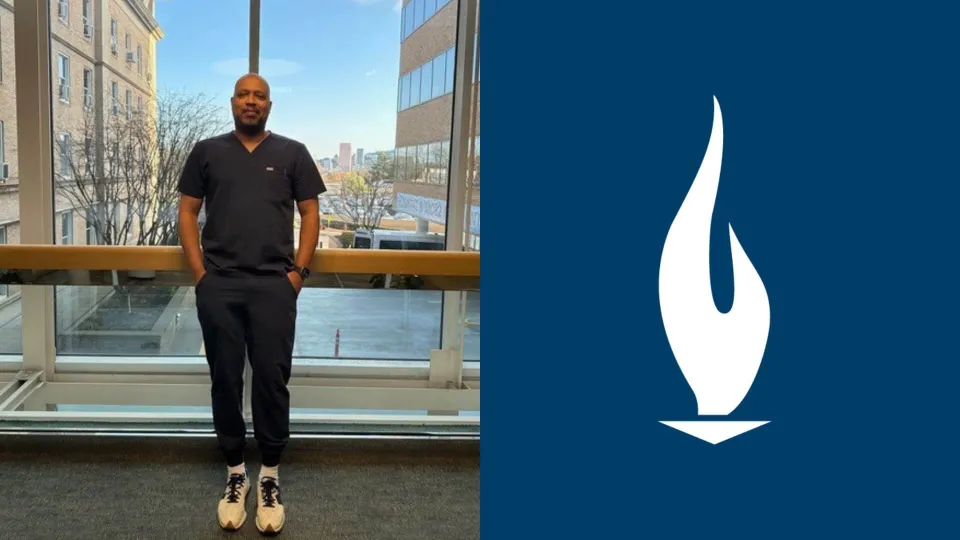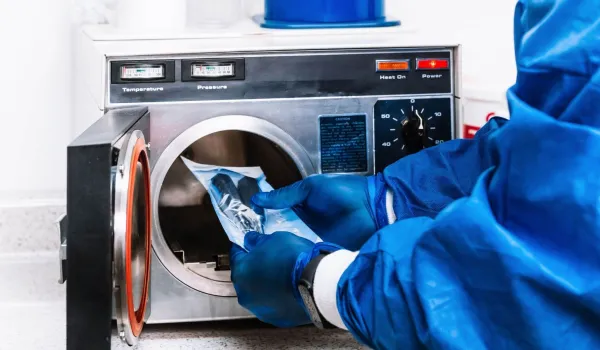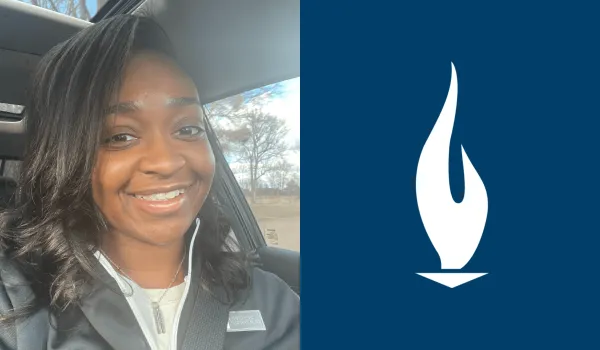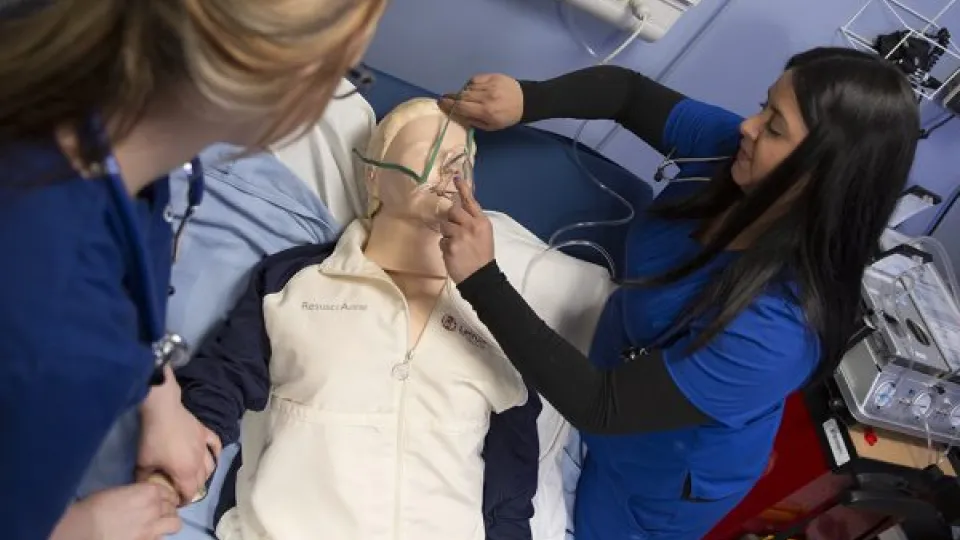
Patients experiencing acute or chronic cardiopulmonary dysfunction receive assessments and treatment through respiratory therapy. A respiratory therapist is a healthcare professional who treats these patients. This individual works with physicians to create a treatment plan and determine the level of care through diagnostic tests and physical examinations. Learn more about the work of a respiratory therapist and the variety of career opportunities available.
The Role of a Respiratory Therapist
The role of a respiratory therapist can involve various job duties that all aim to heal and improve the health of patients with respiratory conditions. These professionals treat patients of all ages, from premature infants to adults in the advanced stages of life. Some of their most common responsibilities include:
- Examining patients to learn about their cardiopulmonary conditions.
- Conducting tests to reach diagnoses.
- Developing and implementing treatment plans.
- Keeping track of patient progress using charts and regular meetings.
- Educating patients about their medications and the therapies they can continue at home.
As respiratory therapists can work with various health care professionals, such as physicians and nurses, they often collaborate with others to diagnose and treat patients. For example, a respiratory therapist may take blood samples and pass them to technicians for diagnostic testing. These therapists can work in many environments, including emergency rooms, hospitals, and homes.
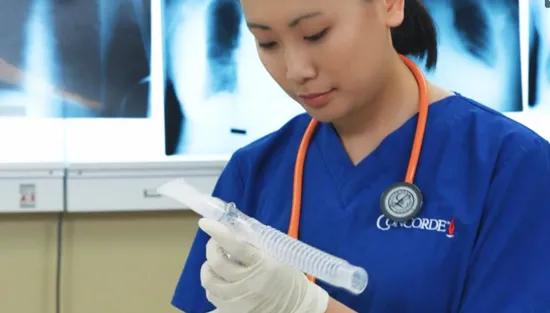
Respiratory Therapist Specialties
Respiratory therapists can specialize in different areas. Here are some of the career paths a respiratory therapist can take.
Emergency Respiratory Therapy
Respiratory therapists specializing in emergency respiratory therapy work in hospitals. They are based in emergency rooms, where they help people recover from serious conditions such as pneumonia, heart surgery, and lung failure. They may assist doctors during surgeries and manage life support for select patients. Much of emergency respiratory therapy involves working with ventilators. This type of respiratory therapy is ideal for quick thinkers and those who can work well under pressure.
Geriatric Respiratory Therapy
As people reach age 65 and older, their lungs become less efficient and require more attention. Respiratory therapists work with older adults to treat conditions such as bronchial pneumonia, respiratory tract infections, and chronic obstructive pulmonary disease. Geriatric respiratory therapy takes place in hospitals, outpatient facilities, or patients' homes.
Adult Respiratory Therapy
Respiratory therapists who treat adults also work in hospitals, outpatient facilities, or patients' homes. Adult patients may need respiratory therapy treatment for conditions such as emphysema, cystic fibrosis, and pulmonary rehabilitation after surgery.
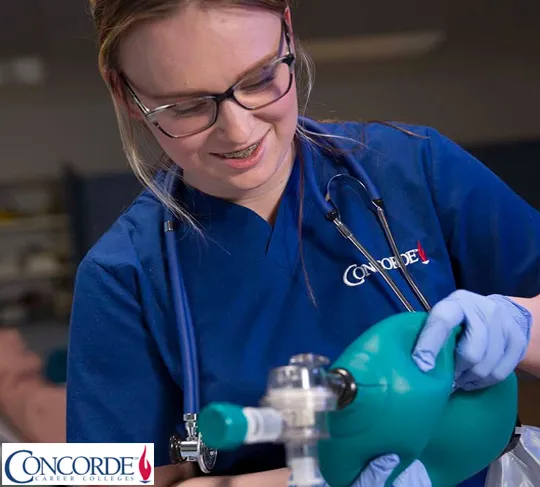
The Different Career Paths of a Respiratory Therapist
Pediatric Respiratory Therapy
Respiratory therapists in pediatrics treat cardiopulmonary issues in newborns and children of all ages. They may work in hospitals and neonatal intensive care units or provide outpatient care to treat childhood asthma. Common pediatric conditions include asthma, lung trauma, and cystic fibrosis.
In-Home Respiratory Therapy
Many patients with chronic or long-term illnesses prefer to receive treatment in their homes. Respiratory therapists who provide in-home care work through a hospital or private company. The demand for in-home respiratory therapy continues to grow. Health care professionals interested in providing more intimate care should consider a career in this specialty.
Related: Should You Study Respiratory Therapy? Career Outlook Guide
Advanced Specialties for Respiratory Therapists
There are also many specializations that respiratory therapists can pursue to advance their careers. Here are some common specializations that often require additional training and certification:
Adult Critical Care Specialty
Those seeking to treat critically ill adults can earn the ACCS credential. The ACCS examination tests their knowledge and skills in adult critical care. These respiratory therapists monitor changes in critically ill patients' lungs, and they'll take over for a transport team member if immediate assistance is needed. Therapists with this specialty may work in an ambulance or the ICU to provide care.
Registered Pulmonary Function Technologist
An RPFT mainly works with patients in a hospital setting and explains procedures administered to them. They check patients' vital signs and write reports following the health care provider's policy. An RPFT can track statistical data for a hospital's respiratory department and make changes to respiratory equipment when needed. They may work in a full-time or part-time capacity.
Technologists typically need a high-cut score on the Pulmonary Function Technology examination to perform in this role. A low-cut score means that they may receive a Certified Pulmonary Function Technologist credential instead.
Neonatal and Pediatric Respiratory Care Specialist
An NPS works in a neonatal or pediatric ward at a hospital. These professionals attend to newborns with breathing disorders, and they respond to respiratory emergencies, such as near drowning, diabetic ketoacidosis, or a car accident, in a pediatric intensive care unit. An NPS can also work with older children and young adults to treat conditions such as asthma and cystic fibrosis, or they may work with premature babies.
Neonatal and pediatric respiratory care specialists require previous experience in a neonatal setting to work in this position. They must pass the examination through the National Board for Respiratory Care to receive further consideration.
Respiratory Care Educator
A respiratory care educator researches new developments and techniques in the field so they can share them with other professionals. Many respiratory care educators oversee training programs that involve meetings and sessions that teach current respiratory therapists about new ways to treat patients. There are many ways to transition to becoming a respiratory care educator after working as a respiratory therapist, such as taking part in presentations, completing research, and earning a relevant degree.
Respiratory Care Sales and Technology
For candidates who work as respiratory therapists but want to transition to a different line of work in the same industry, a job in sales or technology can be ideal. These roles typically involve selling medical devices that therapists can use to perform respiratory care. This can include products such as CPAP machines, oxygen concentrators and masks, ventilators, and BPAP devices.
To pursue a job in medical sales for respiratory care products, candidates usually need experience in the field and at least a bachelor's degree. Sometimes, sales roles may hire candidates with only an associate degree if they have prior experience in respiratory care.
Further Education and Certification Opportunities for Respiratory Therapists
Here's some information about ways for respiratory therapists to advance their expertise while in the field:
Further Education
As the minimum education requirement for a respiratory therapist is typically an associate or bachelor's degree, completing further education may help a candidate qualify for different types of jobs. For example, the American Association for Respiratory Care outlines options for degree advancement that can help a respiratory therapist develop and pursue higher-level roles.
These programs are designed for candidates who have already completed the education required for entry-level respiratory therapy jobs. The AARC describes how candidates may pursue further education. This may increase the chances of securing higher-level roles, such as a case manager or respiratory therapy specialist.
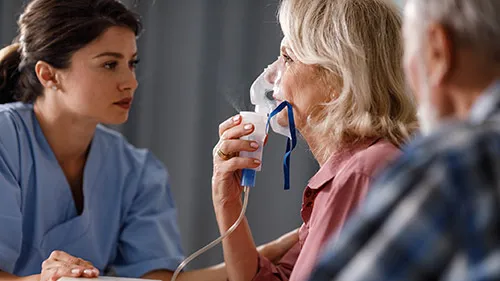
Interested In How To Become a Respiratory Therapist?
Click here to explore respiratory therapist programs near you!
Certification
Aspiring respiratory therapists can consider two certifications to pursue work in this field. Credentialing is offered by the National Board for Respiratory Care (NBRC). Employers may only hire a respiratory therapist with certification. Pursuing a higher degree of certification demonstrates an advanced level of expertise in the field.
The CRT credential is available for those who earn an associate, bachelor's, or master's degree in a respiratory therapy program accredited by the Commission on Accreditation for Respiratory Care.
To complete their CRT, individuals pass the Therapist Multiple-Choice Examination with a minimum of the low-cut score. This exam features 140 scored questions and 20 pre-test questions. Participants have a three-hour window to answer all the questions presented on the exam. The exam covers:
- Patient data evaluation and recommendations.
- Initiation and modification of interventions.
- Troubleshooting and quality control of equipment and infection control.
Individuals who achieve the high-cut score on the TMC exam can take the Clinical Simulation Examination. Passing this exam makes them eligible for the RRT credential, which is the standard of excellence for respiratory therapists. This exam has 115 questions and includes 12 distinct scenarios. Individuals can take the exam within three years of graduation or retake the CRT exam before testing for the RRT.
Networking and Professional Organizations for Respiratory Care Therapists
Since respiratory care therapists often collaborate with other health care professionals, it can be beneficial to their careers to build a strong network. There are many opportunities for networking in the respiratory care field, so candidates can explore their options to find the right way to engage with the community. For example, many states have societies that focus on connecting respiratory care professionals and offering volunteer opportunities. It can also be beneficial to attend conferences or other types of gatherings that allow professionals in respiratory therapy to meet and share their findings and techniques.
Another way to build a professional network is to join organizations that focus on respiratory therapy and care. Here are a few examples of organizations that respiratory therapists can join:
The American Association for Respiratory Care
The AARC provides a wide array of benefits for members. Joining this organization can give candidates access to career services, news about new developments in respiratory care, networking opportunities, and ways to develop professionally through education and certification.
The National Board for Respiratory Care
The NBRC offers a variety of certifications and specialty credentials to help respiratory care providers advance their skills and careers. The organization's goals include promoting high-quality respiratory care, offering opportunities to learn about the profession, and donating to important initiatives in the industry.
The Council for Quality Respiratory Care
The CQRC focuses on connecting oxygen therapy providers and manufacturing companies. They aim to offer the quality at-home oxygen care and create a network for providers and patients to explore different options for respiratory therapy and ways to improve their respiratory health.
Meta description: Learn about what you can do with a bachelor's in respiratory therapy, including advanced specialties, and professional networking opportunities you can pursue.
“What Respiratory Therapists Do,” U.S. Bureau of Labor Statistics Occupational Outlook Handbook, https://www.bls.gov/ooh/healthcare/respiratory-therapists.htm#tab-2
“How I Went from Bedside Therapist to Respiratory Care Educator,” The American Association for Respiratory Care, https://www.aarc.org/careers/career-advice/professional-development/bedside-therapist-to-respiratory-care-educator/
“What Can You Do With a Respiratory Therapy Degree? + Alternative Careers for Respiratory Therapists,” Goodwin University, https://www.goodwin.edu/enews/what-can-you-do-respiratory-therapy-degree/
“Respiratory Therapy Degree Advancement,” The American Association for Respiratory Care, https://www.aarc.org/careers/respiratory_therapy_degree_advancement/
“Registered Respiratory Therapist (RRT),” The National Board for Respiratory Care, https://www.nbrc.org/examinations/cse/
“Networking,” The American Association for Respiratory Care, https://www.aarc.org/careers/networking/
Take The Next Step Towards a Brighter Future
Interested in learning more about our Respiratory Therapy program?
We have a Concorde representative ready to talk about what matters most to you. Get answers about start dates, curriculum, financial aid, scholarships and more!

